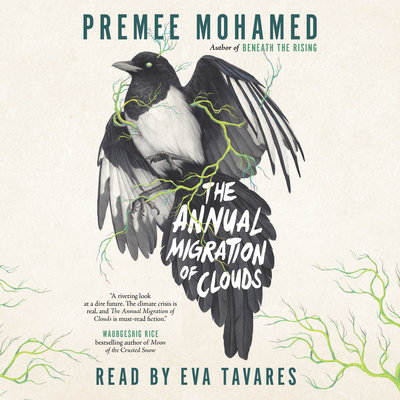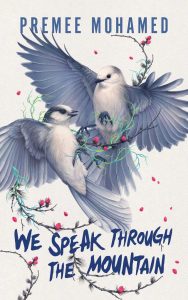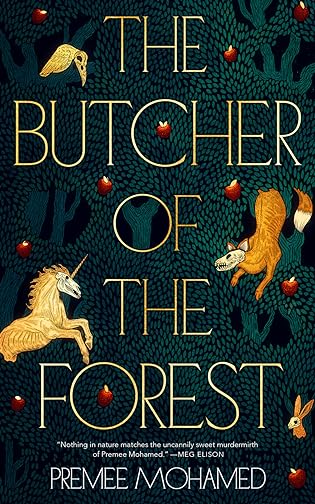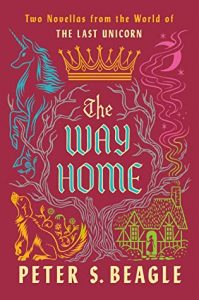 We Speak Through the Mountain (Annual Migration of Clouds, #2) by Premee Mohamed
We Speak Through the Mountain (Annual Migration of Clouds, #2) by Premee Mohamed Format: eARC
Source: supplied by publisher via NetGalley
Formats available: paperback, ebook, audiobook
Genres: dystopian, post apocalyptic, science fiction
Series: Annual Migration of Clouds #2
Pages: 152
Published by ECW Press on June 18, 2024
Purchasing Info: Author's Website, Publisher's Website, Amazon, Barnes & Noble, Kobo, Bookshop.org, Better World Books
Goodreads
The enlivening follow-up to the award-winning sensation The Annual Migration of Clouds Traveling alone through the climate-crisis-ravaged wilds of Alberta’s Rocky Mountains, 19-year-old Reid Graham battles the elements and her lifelong chronic illness to reach the utopia of Howse University. But life in one of the storied “domes” ― the last remnants of pre-collapse society ― isn’t what she expected. Reid tries to excel in her classes and make connections with other students, but still grapples with guilt over what happened just before she left her community. And as she learns more about life at Howse, she begins to realize she can’t stand idly by as the people of the dome purposely withhold needed resources from the rest of humanity. When the worst of news comes from back home, Reid must make a choice between herself, her family, and the broken new world. In this powerful follow-up to her award-winning novella The Annual Migration of Clouds , Premee Mohamed is at the top of her game as she explores the conflicts and complexities of this post-apocalyptic society and asks whether humanity is doomed to forever recreate its worst mistakes.
My Review:
The world that Reid Graham battles her way through is a dystopia that seems to have suffered through a long slide rather than an actual apocalypse. There’s not really a day or an event that people point to, more like a slow collapse that is still ongoing.
Actually kind of like now, if you squint. Which feels intentional if not exactly in your face. Although it certainly is in Reid’s face as she makes her way from her dying home village to the secret location of the rarefied elite enclave, Howse University.
Reid intends to use the four years of her scholarship to learn everything she can so she can bring that knowledge back home where it’s needed. The powers-that-be at H.U. have other plans. Plans that become obvious to Reid long before the equally obvious brainwashing is able to kick in.
If it ever can or ever will.
Howse University is kind of an Eden, but the parable is a bit reversed. It’s not so much about eating from the tree of knowledge as it is her unwillingness to let go of the knowledge she came in with.
She knows, from bitter experience, that the terrible situation back in her home wasn’t because her people were lazy, or because they didn’t try to make things better, or because they were stupid or any of the other things that elites say to blame poverty and disease on the people suffering them instead of on the systems that keep them down.
Reid’s people are in the position they are in because the diseases brought by the creeping climate apocalypse keep sapping their strength and energy and pulling them down by force. Her people are too caught up in caring for the sick and burying the dead and keeping everyone fed and barely housed to have the time to work on recapturing the tech and the knowledge they used to have.
Knowledge and tech that Howse University and its network of other institutional enclaves are keeping to themselves, for themselves, as they look down upon the have-nots their own ancestors created.
So Reid reminds the H.U. students and faculty of all the truths they’d rather forget, hoping to dig deep enough to find a conscience in a few of them. Even as the classes and the restrictions and the safety protocols and the many, many, health enhancements that H.U. administers keep the deadly, debilitating disease she brought up the mountain with her at bay.
But never cure – because they want her to be dependent and easily influenced, and that’s what the disease does for them. A truth which condemns Reid and sets her free, all at the same time.
 Escape Rating B+: I had not read The Annual Migration of Clouds before I picked up We Speak Through the Mountain, and I’m not sure that was such a good idea – so I’ve rectified that omission in the months since, because now that I’ve read that first book, I can tell that I would have rated this one higher when I read it if I’d had more of the background.
Escape Rating B+: I had not read The Annual Migration of Clouds before I picked up We Speak Through the Mountain, and I’m not sure that was such a good idea – so I’ve rectified that omission in the months since, because now that I’ve read that first book, I can tell that I would have rated this one higher when I read it if I’d had more of the background.
Consider this a warning not to make the same mistake. Both stories are novellas, so neither is a long read, but I think they work better together rather than separately. Not that I didn’t get enough to find my way in this book, but I think they work a whole lot better as a whole.
This second book has strong hints of The Practice, the Horizon, and the Chain, another novella that pokes hard at the stratification and ossification of society, and the way that academia reinforces such tendencies no matter how liberal it likes to think it is.
As I said, this is a bit of an Eden parable in that Howse University is paradise and she is thrown out both because she has eaten from the tree of knowledge within H.U. and because she came in having already eaten from that tree – at least a different branch of it -and refusing to stop.
Reid tries her best but the entrenched privilege is too real, and the brainwashing of each class of recruits has been too successful. Which doesn’t erase the questions asked but not answered throughout the story.
What do the descendants of the haves – who continue to have and to exclude – owe the descendants of the have-nots? If the author returns to this world, and I hope she does, I’ll be very interested to see how things proceed from here, because it feels like Reid’s journey is not over. Now that I’m invested I want to see what happens next – and what Howse University decides to do about it.

 The Annual Migration of Clouds by
The Annual Migration of Clouds by  Escape Rating A-: I picked up this book because I read the sequel to this,
Escape Rating A-: I picked up this book because I read the sequel to this,  The Butcher of the Forest by
The Butcher of the Forest by  What kept niggling at me through my read of The Butcher of the Forest was that it reminded me, strongly and often, of something else that was not Middle Earth. And that, as it turns out, is the Sooz duology in Peter S. Beagle’s
What kept niggling at me through my read of The Butcher of the Forest was that it reminded me, strongly and often, of something else that was not Middle Earth. And that, as it turns out, is the Sooz duology in Peter S. Beagle’s